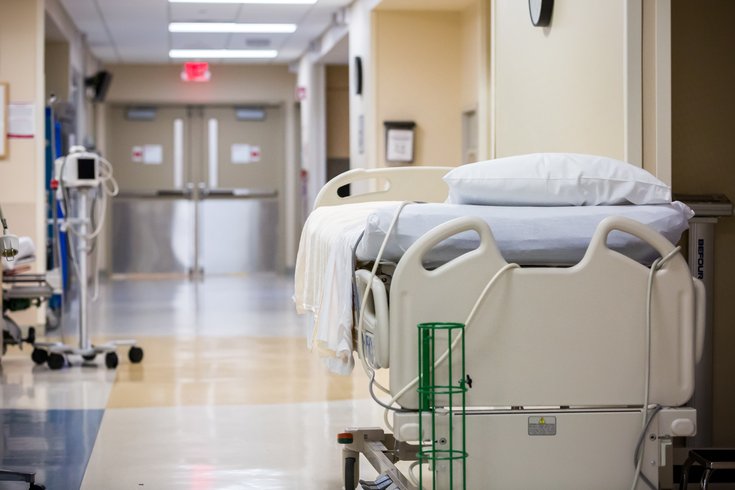
June 16, 2016
 Thom Carroll/PhillyVoice
Thom Carroll/PhillyVoice
Don’t let a stroke stand between you and your future.
On average, one American dies from a stroke every four minutes. The most devastating part? Nearly 80 percent of strokes are preventable. Debilitating and deadly, strokes prevent precious family memories — births, holidays, happiness and full lives filled with family and friends. Even for stroke survivors, the death of millions of brain cells renders you not who you once were. Don’t let a stroke stand between you and your future.
Though a common killer, strokes can occur in a variety of ways. The two most common forms are an ischemic stroke, which occurs if an artery that supplies oxygen-rich blood to the brain is blocked, and a hemorrhagic stroke. The latter materializes when an artery in the brain leaks blood or ruptures.
Cultivating a healthy lifestyle prevents high blood pressure and cholesterol — a No. 1 priority for controlling and abating your risk of stroke. Follow this guide today to help you and your family avoid tragedy tomorrow.
With today’s technology, it’s easier than ever to plan and prepare nutritious meals, and maintaining a balanced diet is essential for keeping your arteries clog-free. Stick to a diet full of veggies, fruits, whole grains and lean meats to fuel your body with the nutrition it needs. Starting your mornings with filling, fiber-rich whole grains can lower blood cholesterol and help you manage a healthy weight. Limit processed foods laden with salt and preservatives, as increased salt intake can make you a candidate for high blood pressure, which, in turn, can lead to a stroke. Replace salty snacking with a small piece of dark chocolate. Studies show that dark chocolate can lower the risk of stroke by 30 percent when consumed more than once a week.
You’ve heard it a million times — exercise! The benefits of exercise can’t be stressed enough. Humans were made to move, and excess weight can put a serious strain on your health. Engage in regular physical activity to ward off unwanted fat and bolster a longer life. Quantity takes preference to quality. Just moderate activity — brisk walking, water aerobics or bicycling — can improve your overall health and reduce the likelihood of stroke. No matter where you manage to fit it in — all physical activity counts.
Smoking doubles your risk of stroke. This is because smoking increases plaque buildup and clot formation and thickens your blood. If you want to live a longer life, quit now. Get over it, you’ll still be allowed to drink. Just not too much. Limit yourself to two drinks a day for men and one drink a day for women.
A study from Harvard of 70,000 women found that those who snooze less than seven hours and more than nine hours a night were at a greater risk for heart disease. Lack of sleep impacts blood sugar levels, increases stress and raises blood pressure. Regular sleep is best for a healthy, stroke-free lifestyle.
Fostering a healthy lifestyle through diet and exercise can reduce your risk of high blood pressure and high cholesterol. High cholesterol leads to the buildup of fatty plaques that reduce blood flow to the arteries, also known as atherosclerosis, and can lead to stroke.
Communicate with your doctor about controlling your cholesterol with medication if diet and exercise don’t bring down your cholesterol levels. If you have pre-existing heart issues, medication can help thin your blood and reduce cholesterol levels. Regular medication can help reduce your stroke risk, especially if your family history puts you at a greater risk.
Working toward a healthier lifestyle cannot only help prevent your risk of stroke; it can also abate other life-threatening diseases. For instance, diabetes quadruples stroke risk, and two-thirds of people with diabetes eventually die of a stroke or heart attack.
Don’t let a stroke steal your life from you. Cultivate a healthy lifestyle for you and your family to lead long-lasting lives. Similarly, stay alert for signs of stroke around you. The acronym F.A.S.T. stands for facial drooping, arm weakness, speech difficulty, and time to call 911 and can help you identify if someone is having a stroke. Take action and save a life — it may be your own.